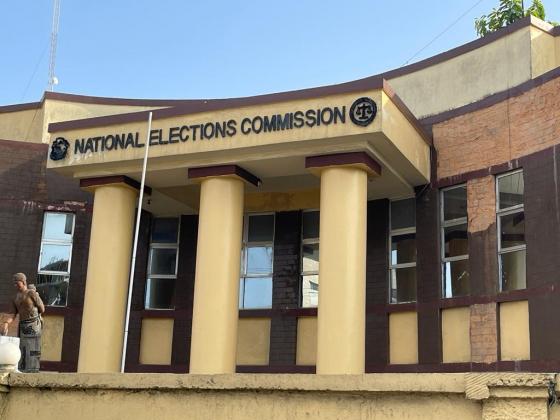Liberia: NEC-Declared Winners Could Be Seated Until After Election Disputes

— New elections law suggests
The 54th Legislature has passed a bill that would stretch the country's resources if President George Weah signs it into law.
The measure, which altered Section 32 of the "New Election Law", called on the National Elections Commission to certify all individual declared winners of any legislative elections in the country, regardless of legal objections. The lawmakers' actions have been frowned upon by critics as a decision that would further breed conflict in the country due to unresolved disputes emanating from the electoral process.
Section 32, as amended through 2014, mandated the electoral body to withhold the certification of its declared winner until the legal challenges against said result are resolved through the chain of election dispute resolution mechanism provided by this law, including a final determination by the Supreme Court.
“Where there is a challenge to or a dispute regarding the returns to the presidential elections, the returns declared by the Commission shall remain in abeyance in the event a complaint is filed by a candidate or his/her political party, coalition, or alliance with the Commission until such complaint is resolved through the chain of election dispute resolution mechanism provided by this law, including a final determination by the Supreme Court.”
But the 54th Legislature's amendment changed everything, saying, where there is a challenge, the candidate declared by the NEC should assume the position, pending the disposition of the challenge.
The elected official, whose position is then contested, will receive pay and all other legislative benefits, while the legal challenge is being looked at. In this case, the seat is only lost by the setting lawmakers based on the ruling of the NEC or the Supreme Court.
Election litigation in Liberia takes more than a month to resolve, and with roughly 88 legislative seats up for grabs in 2023, there could be a slew of legal challenges to the results, clogging the courts with cases that could take many months to resolve.
After the October census, the number of legislative slots for 2023 could exceed 88, necessitating a redistricting of the House of Representatives.
“Where there is a challenge to or a dispute regarding the returns to legislative elections or any other elections, as representation of the people is the sine qua non for democratic governance, the candidate declared by the Commission to be successful at such election shall assume the position for which he/she contested pending the disposition of the challenge through the dispute resolution mechanism provided by this law and the Constitution,” the enacted law reads.
“Provided that if it is finally determined that such person was not the successful candidate, he/she shall relinquish the position, or, if it is a legislative position and he/she refuses to relinquish the position, the person shall be ousted by the House of Representatives or the Senate, whichever is applicable; and if it is any other elective public position, the person shall be ousted by the filing of a quo warranto proceeding with the Supreme Court.”
“A person, who assumes an elective public office pursuant to the returns of the Commission pending the final determination of a dispute or challenge, but is eventually determined by the dispute settlement mechanism provided by this law and the Constitution not to be the successful candidate, shall not ordinarily be liable for anything upon the relinquishment of the elective public office,” the law said.
“Such person shall, however, be liable for all compensations and benefits received if he/she is ousted from the elective public office by either relevant House of the Legislature or by an order of the Supreme Court growing out of a quo warranto proceeding. The person who is eventually determined to be the successful candidate at said election shall be entitled to only compensations and benefits commencing from the date of induction into office.”
However, the law is ambiguous on how the government can lay claims on expenses made on said officials if the legal challenge against the result is won by the complainant.
It only holds the ousted officials liable for all compensations and benefits received but is silent on repayment.
This would force the government into costly litigation, with bills running into thousands of dollars while attempting to reclaim expensive goods.
This process could take months, if not years. And if the government wins any of its many litigations, a request for a repayment plan is likely, and this will take the country years to recoup the expenses, strangling its already limited resources.
The law also put the state under pressure to win its first litigation if it decided to pursue the expense since all the cases would be similar. Losing the first case means the government would find it difficult to recoup future expenses paid to ousted officials who lost their seats as a result of legal challenges.
Meanwhile, in the 54th legislature's various amendments to the New Election Law were contained in recommendations contained in a Joint Conference Committee, headed by Representative Kanie Wesso and Senator Varney Sherman, chairs of the Judiciary Committees of the Lower and Upper Houses, respectively.
The House passed its amendment to the law on September 13, while the Senate concurred on September 15. After the passage, the legislature adjourned for recess.
They, however, maintained in the law of Section 32 that consistent with Article 83 (c) of the Constitution, returns of Election shall be declared by the NEC not later than fifteen (15) days after the casting of ballots.
